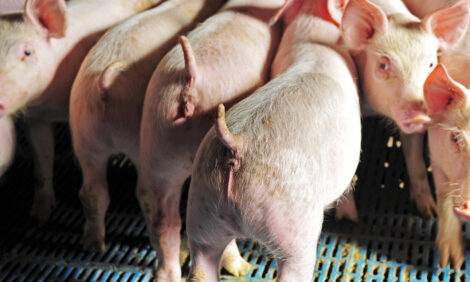



Food Scares Boost Organic Food Sales
CHINA - While recent food scare issues have been well documented in China, new research from Mintel on consumer lifestyles there reveals that consumers are employing a variety of self protection strategies, with the organic food sector being the major beneficiary - with 80 per cent of urban Chinese consumers claiming that organic food and drink products are worth paying more for.Indeed, it appears that Chinese consumers are buying more organics and today, some 56 per cent of urban Chinese consumers claim to have upped their spend on organics. Over half (56 per cent) of urban Chinese consumers purchased organic fresh foods in the past year and over one in five (22 per cent) purchased organic frozen. Fresh milk (purchased by 37 per cent of Chinese urban consumers), Cooking Oil (35 per cent), Pork (33 per cent), Beef (26 per cent) and Chicken (26 per cent) are the top five categories where Chinese consumers have purchased organic food. Supermarkets are the most common purchase channel with 75 per cent of consumers buying organic products from a supermarket, followed by 51 per cent shopping for organics at a hypermarket.
Paul French, Chief China Market Strategist at Mintel, said: “The fact that Chinese consumers claim to have upped their spend on organics indicates a growing awareness of organic as a possible means of self protection. In a world where food contamination, spoilage, fake goods and poisoned products are a daily news story, how do you protect yourself, your children or your family? This is a major question for Chinese people and consumers are adopting multiple self-protection strategies in the face of the deluge of food scares that just keep on coming."
"The significant rise in consumption of organic foods illustrates the extent to which (higher income) consumers will embrace any opportunity to buy and ‘consume’ foods they perceive to have stronger provenance or origins in the way that it was grown and sourced. The success of foods grown and produced for export, and those foods from ‘trusted’ foreign sources, are providing a level of ‘confidence’ that is seeing consumers engage more effectively with the brands.“ Mr French continues.
There were seven major food scares in China during 2011, and they reflect the range and scope of the challenge that the food and drink market faces. Food scares around tainted infant formula have definitely made their mark and today nearly half (43 per cent) of urban Chinese consumers say that they check the label of infant formula products.
However, despite repeated scares about false product claims on packaging in China, some 87 per cent are also likely to spend more on foods labelled as “all-natural“. And it seems checking packaging information and labelling is also an important protection tool for consumers - and today 97 per cent of urban Chinese consumers say that they check the sell by date stamp before purchasing food and drink. Indeed, claim checking remains an important issue, with some 87 per cent of consumers checking consumption instructions, 82 per cent storage instructions, 78 per cent checking the Net Content, 67 per cent the country of origin, 67 per cent the name and address of the manufacturer and distributor and 66 per cent the industry certification label. Brand also remains a key issue - with 92 per cent claiming they would check this.
“As China’s food scares crisis persists, companies continue to seek effective strategies to ensure that their products do no harm. However, a food scare is a many-headed hydra – farmers, logistics suppliers, food manufacturers, packagers and retailers are all weak points in a very weak chain. Brands can tap into this by ensuring their own supply chain is safe and that their customers’ trust is retained. The alternative is, at best, reduced sales and, at worst, criminal liability. Food safety in China is now a very serious business, not just for consumers but also for manufacturers and brands.“ Mr French concludes.






